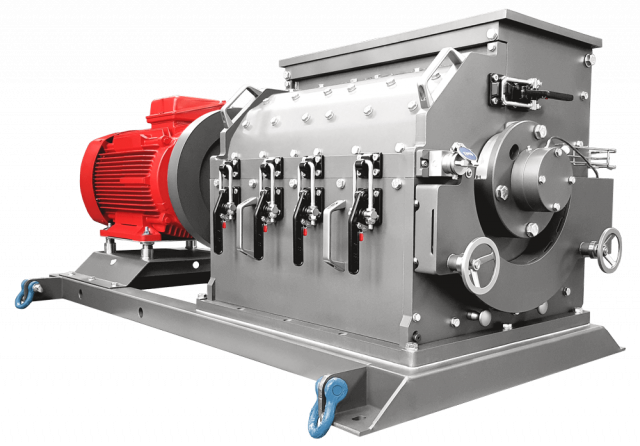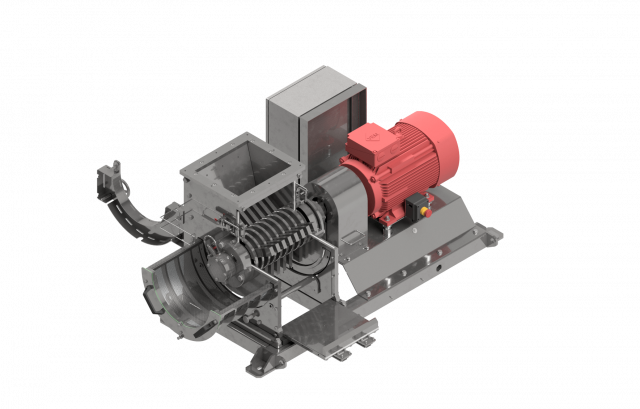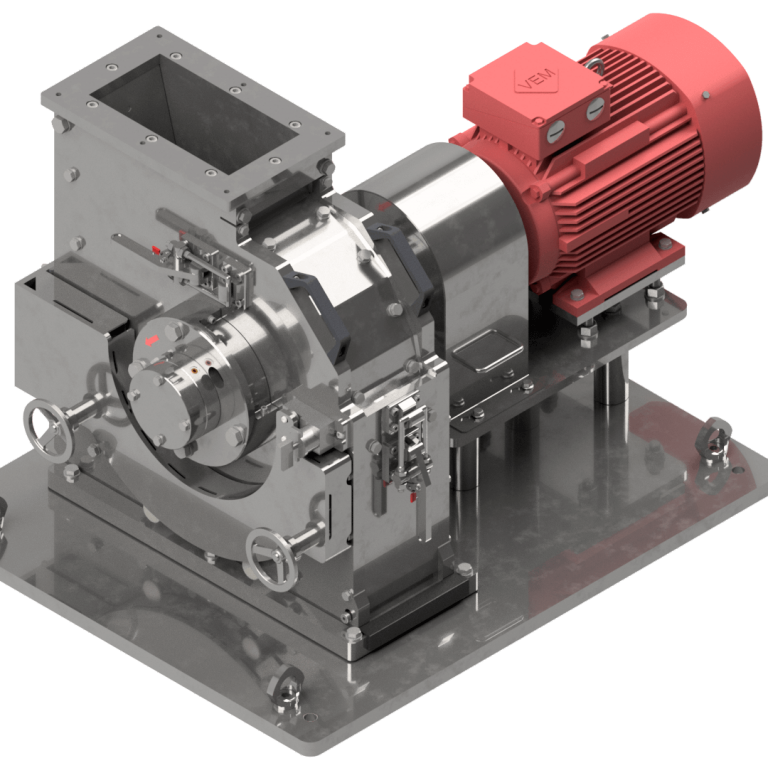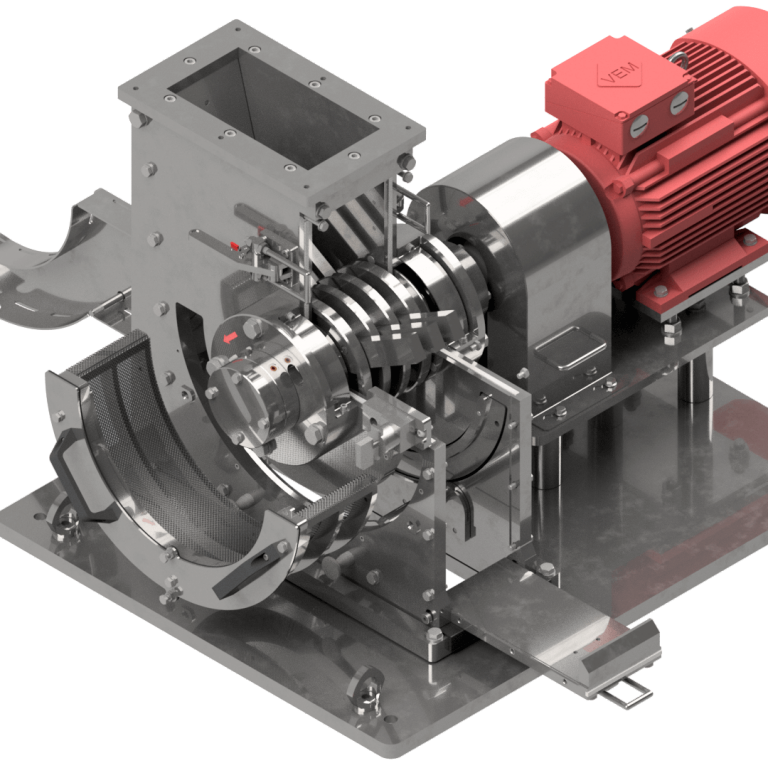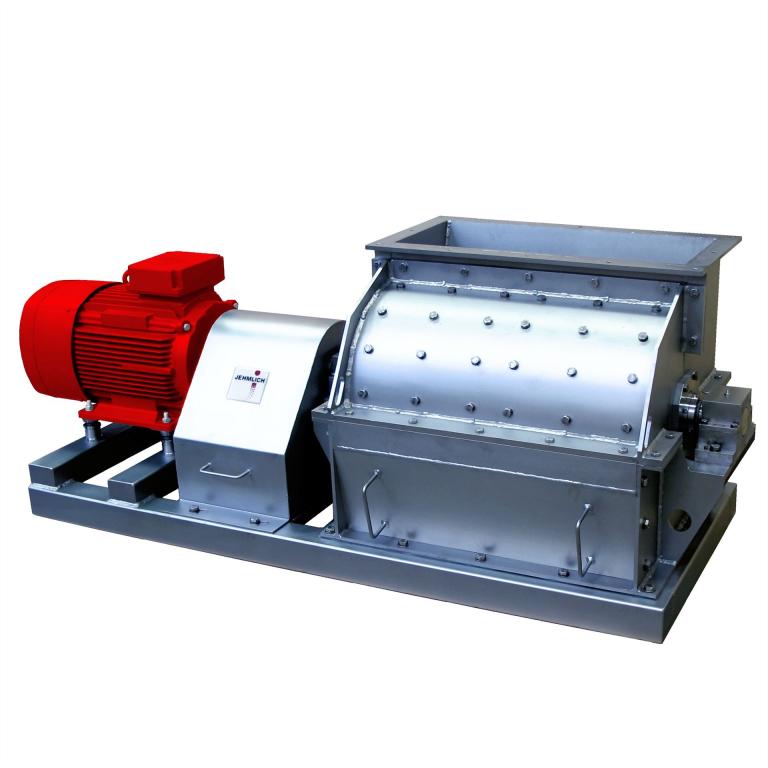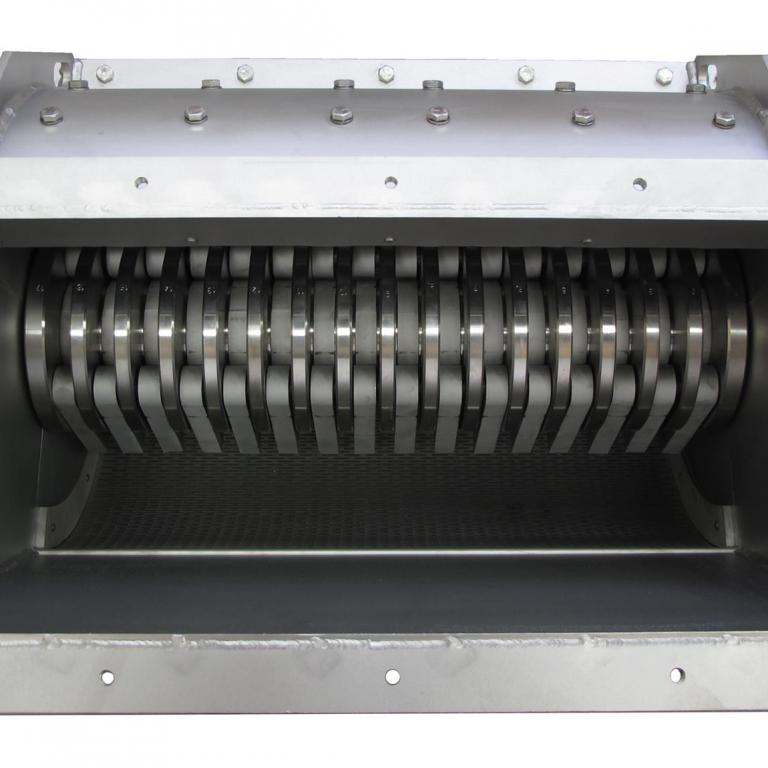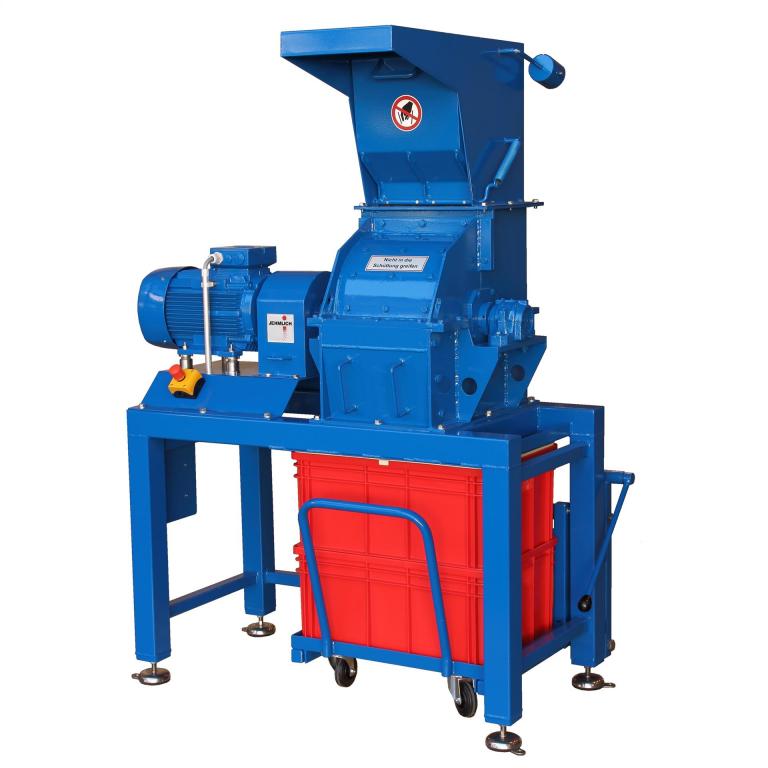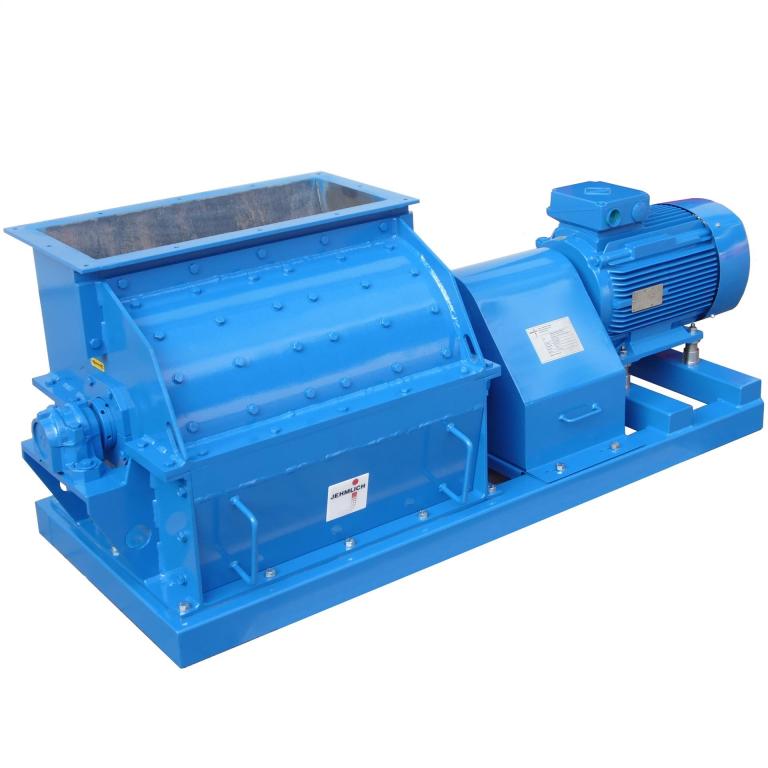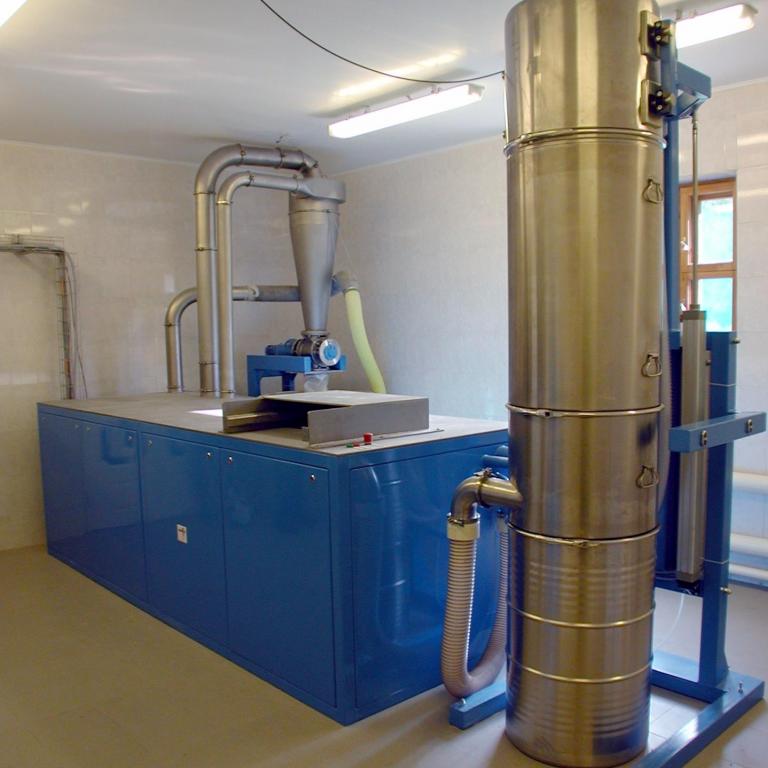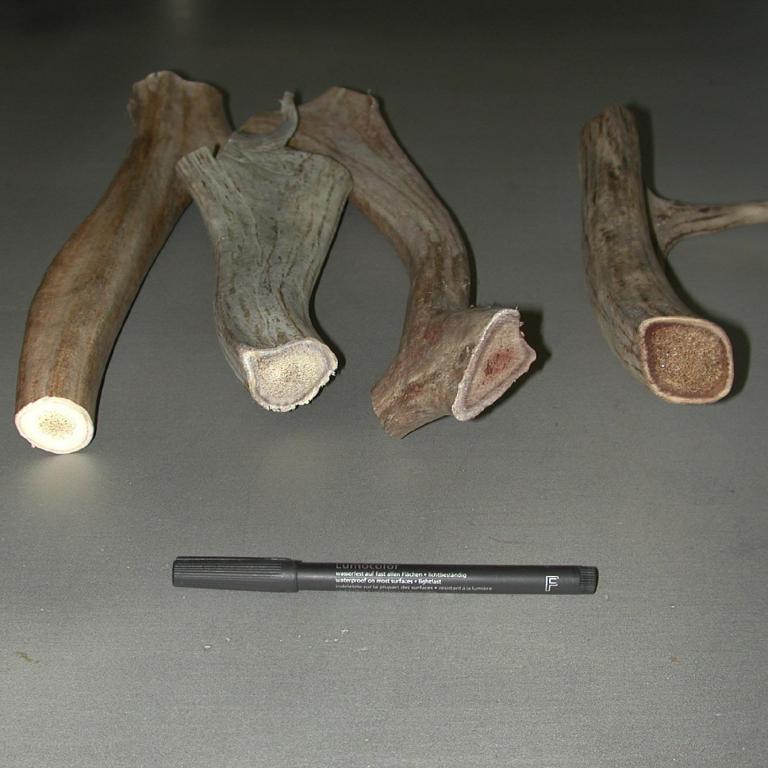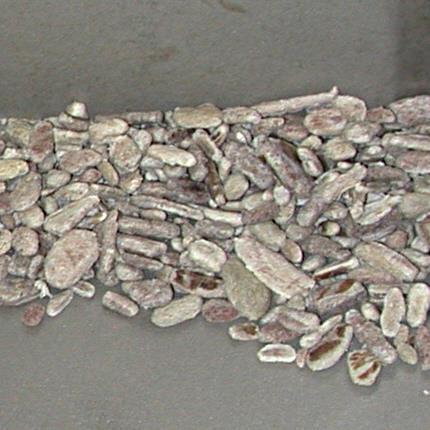The robust, industrial hammer mills type HM 142, HM 342 and HM 672 are used for crushing materials ranging from dry to damp, soft to tough, chewy to brittle. Depending on product characteristics and the desired milling result, both types may be equipped with a variety of sieve and bar grate screen inserts. Comfortable acces to hammers, shaft and sieve insert for revision and maintenance is provided by the foldaway fronthousing. The sieve insert in easily changed from the side. The JEHMLICH hammer mills are designed for both standalone operation (batch) and direct integration into a production line.
Both types are available in mild and stainless steel.
Design Sizes of the Hammer Mills
|
Design size |
HM 142 |
HM 342 |
HM 672 |
|---|---|---|---|
|
Motor |
max. 7,5 kW (10 PS) |
max. 18,5 kW (24 PS) |
max. 45 kW (60 PS) |
|
Inlet width |
140 mm (5,5") |
340 mm (13") |
670 mm (26") |
|
Weight |
approx. 300 kg |
approx. 460 kg |
approx. 650 kg |
|
Capacity |
up to 10 t/h |
up to 20 t/h |
up to 40 t/h |
Example: Crushing of Rock Salt
Example: Sample Preparation
This hammer mill is used for preparation of different damp and lumped samples for a following analysis. A manually operated infeed flap enables the secure and batch-wise feeding of the sample material. The grinding stock is collected in exchangeable containers.
To avoid dust formation, an additional aspiration may be applied.
Example: Molding Sand Preparation
Example: Crushing of Ceramic
This hammer mill is used for preparation of damp and lumped ceramic samples for following analysis. A manually operated infeed flap enables the safe and batch-wise feeding of the sample material. The grinding stock is collected in exchangeable containers.
Easy changeable screen inserts enables the adjustment of the mill to the particular crushing task.
